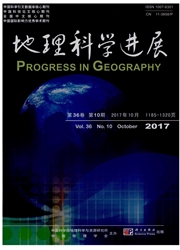

 中文摘要:
中文摘要:
随着经济全球化和西方新自由主义政策推行,封闭社区以其空间私有化、社会分异与隔离的特征成为一种特殊的全球现象。封闭社区对城市社会、政策和经济发展等方面具有重大影响。本文在对国内外研究成果总结的基础上,探讨封闭社区的性质、类型和形成的影响因素,并重点讨论封闭社区对城市空间发展与演变的影响。封闭社区具有物理空间封闭性、社会空间隔离性和文化空间契约性,是经济全球化与新自由主义政策、制度环境与历史文化变迁和多元主体共同作用的产物。在空间效应上,封闭社区影响着城市物质空间、社会空间和文化空间的塑造和演变,进而深刻影响城市空间演化与城市发展。最后,从城市政府和城市规划的角度讨论封闭社区的治理建议。
 英文摘要:
英文摘要:
With economic globalization and implementation of neo-liberalism policy in western countries, Gated Communities (GCs), with the characteristics of privatized living areas as well as differentiated and isolated so- cial spaces, have become a unique phenomenon globally and have significant influences on urban society, policy and economic development. Based on an extensive review and summary of the related contemporary literature, this paper discusses the factors that affect the nature, type and formation of gated communities, especially the im- pacts of gated communities on the development and evolvement of urban areas. Gated communities are the con- sequence of the combination of economic globalization, neo-liberalism policy, institutional environment and the interactions of different types of stakeholders; they have the characteristics of closed physical space, isolated so- cial environment and cultural compatibility. Gated communities have significant influences on urban physical en- vironment, social environment, and cultural environment, which in turn have profound effects on the spatial evo- lution and development of urban areas. At last, we seek to make suggestions and measurements for the gover- nance on gated communities both from the perspective of city government and urban planning.
 同期刊论文项目
同期刊论文项目
 同项目期刊论文
同项目期刊论文
 ECOLOGICAL RISK ASSESSMENT OF PARENT AND HALOGENATED POLYCYCLIC AROMATIC HYDROCARBONS IN SURFACE SED
ECOLOGICAL RISK ASSESSMENT OF PARENT AND HALOGENATED POLYCYCLIC AROMATIC HYDROCARBONS IN SURFACE SED Occurrence, distribution, and source of polybrominated diphenyl ethers in soil and leaves from Shenz
Occurrence, distribution, and source of polybrominated diphenyl ethers in soil and leaves from Shenz Occurrence and human non-dietary exposure of polycyclic aromatic hydrocarbons in soils from Shenzhen
Occurrence and human non-dietary exposure of polycyclic aromatic hydrocarbons in soils from Shenzhen 期刊信息
期刊信息
